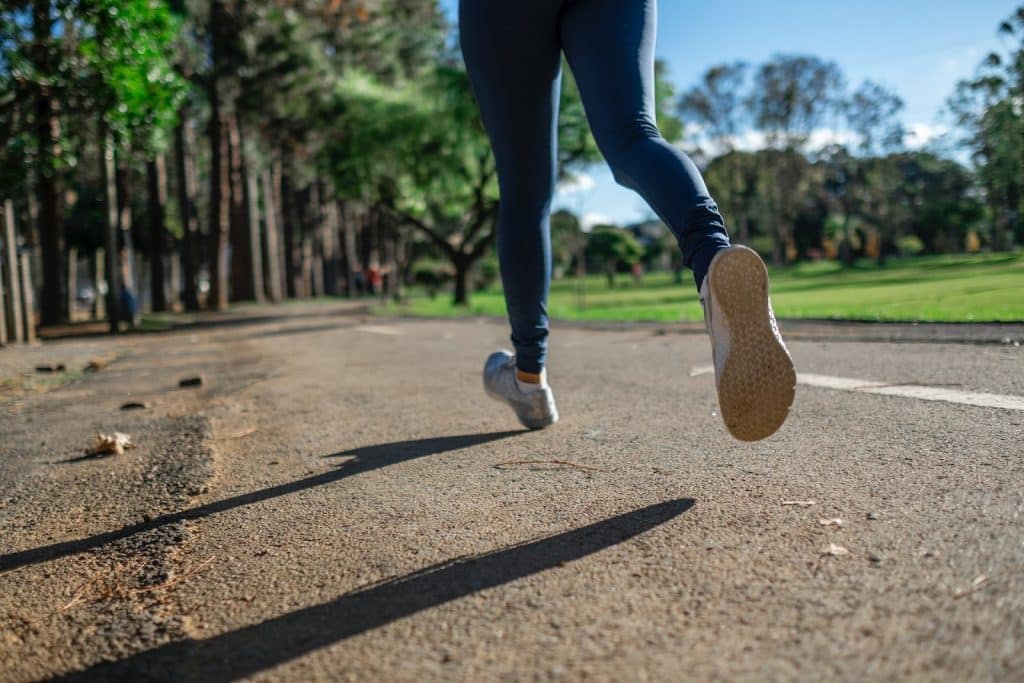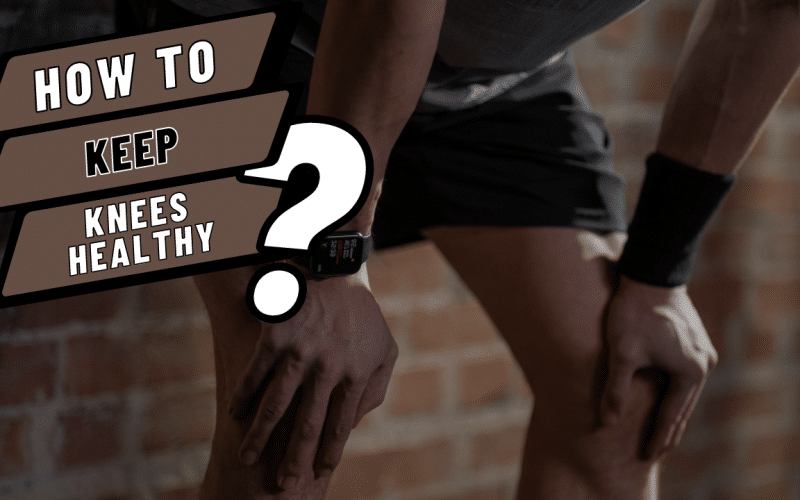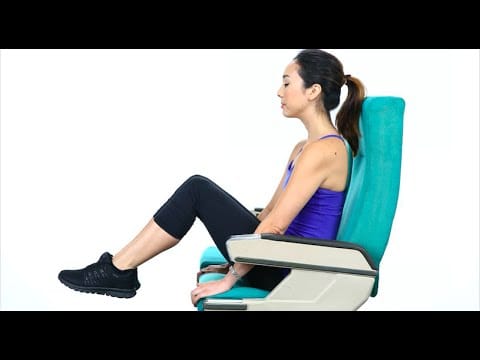Your knees are the workhorses of your body, tirelessly carrying you through every step of your day. From running errands to playing sports, your knees are always on the go, which is why it’s so important to keep them healthy and pain-free.
But with all the wear and tear they endure, how do you keep them in tip-top shape? Don’t worry! It’s not as difficult as you might think.
In this article, we’ll explore the best ways to take care of your knees & enhance muscle strength so you can enjoy all the activities you love without a tedious exercise regimen. So, let’s get started and find out how to keep your knees healthy for life!
Ways To Keep Knees Healthy
Knees play a crucial role in our daily movements, but with age and wear and tear, knee cartilage can become susceptible to joint pain and injury. Learn how to keep your knees healthy and functioning at their best with these simple tips and strategies.
Maintain a Healthy Weight
One of the simplest and most effective ways to protect your knees is to maintain a healthy weight.
Excess weight puts extra strain on your knee joints, leading to pain and inflammation. It’s recommended to aim for a Body Mass Index (BMI) within the healthy range, which is between 18.5 and 24.9.
By eating a balanced diet and engaging in regular physical activity, you can maintain a healthy weight and avoid common knee injuries.
Strengthen Your Muscles
Strong muscles surrounding your knees help to provide stability and support. Focus on strengthening your quadriceps, hamstrings, and calf muscles to help reduce the risk of knee injuries.
Squats, lunges, and leg presses are effective exercises for strengthening the muscles around your knees. You can also incorporate balance exercises like single-leg squats to improve your stability and balance.

Stay Flexible
Stretching is essential for maintaining flexibility in your knees. Regular stretching can help reduce the risk of knee replacement surgery, relieve knee pain, help you lose weight, and improve mobility.
Target the muscles surrounding your knees, such as your quadriceps, hamstrings, and calves. Hold each stretch for at least 20 to 30 seconds and repeat 2 to 3 times.
Wear Proper Shoes
Wearing shoes that provide proper support and cushioning is crucial for knee health. Shoes that fit well and provide ample shock absorption can help reduce the impact on your knees and minimize the risk of knee injuries.
Invest in high-quality shoes designed for the type of physical activity you plan to engage in. For example, if you’re a runner, look for running shoes with adequate arch support and cushioning.
Protect Your Knees During Physical Activity
If you’re an active person, it’s important to protect your knees during physical activities. Wearing knee pads, braces, or supportive tape can help reduce the risk of knee injuries and provide extra support.
Additionally, take time to warm up before physical activity and cool down afterward to help reduce the risk of knee injuries.
Consult a Doctor
If you experience knee pain or discomfort, it’s important to consult a doctor. Early diagnosis and treatment can help to prevent knee problems from becoming more serious.
Your doctor can recommend appropriate treatment options, including physical therapy, medication, or surgery, if necessary.
Manage Knee Pain
If you’re experiencing knee pain, it’s important to manage it appropriately to reduce the risk of knee problems becoming more serious.
Applying ice to the affected area, taking over-the-counter pain medication, and elevating your knee can help to relieve knee pain. If the pain persists or becomes worse, it’s important to consult a doctor.
Avoid High-Impact Activities
High-impact activities (e.g., jumping or running) can put a lot of strain on your knees and increase the risk of knee injuries.
If you have or are at risk of knee problems, it’s important to avoid high-impact activities and opt for low-impact ones instead. Low-impact activities like cycling, swimming, or using an elliptical machine can help reduce the impact on your knees and minimize the risk of knee problems.

Incorporate Healthy Habits
Incorporating healthy habits into your daily routine can help protect your knees. Eating a balanced diet rich in vitamins and minerals, such as calcium and vitamin D, can help maintain strong bones and reduce the risk of knee problems.
Getting enough sleep and reducing stress can also help to keep your knees healthy and pain-free.
Stay Active
Staying active is an essential part of maintaining knee health. Regular physical activity can help strengthen the muscles surrounding your knees, improve your balance and stability, and reduce the risk of knee problems.
Engage in physical activity that you enjoy, such as walking, cycling, or swimming, and aim to be physically active for at least 30 minutes a day, most days of the week.
By incorporating these simple tips into your daily routine, you can keep your knees healthy and pain-free. Remember, taking care of your knees today can help you enjoy all the activities you love for years to come!
What To Avoid?
To keep your knees healthy, avoid certain activities and habits that can put a strain on your knees and increase the risk of knee problems.
Some of the things to avoid include:
- Inactivity: Being inactive for long periods can weaken the muscles surrounding your knees and increase the risk of knee problems. Staying active is an essential part of maintaining knee health.
- Wearing improper shoes: Wearing shoes that don’t provide adequate support and cushioning can put unnecessary strain on your knees and increase the risk of knee problems. It’s important to wear shoes that fit well and provide appropriate support and cushioning.
- Carrying heavy loads: Carrying heavy loads, such as bags or backpacks, can put a lot of strain on your knees and increase the risk of knee problems. If you need to carry heavy loads, it’s important to distribute the weight evenly and use both hands to carry the load.
- Ignoring knee pain: Ignoring knee pain and not seeking appropriate treatment can lead to knee problems becoming more serious. If you’re experiencing knee pain, it’s important to manage it appropriately and consult a doctor if necessary.
- Poor posture: Maintaining good posture is important for keeping the knees healthy. Avoid slouching or hunching over, as this can put extra strain on the knees and lead to pain.
Bonus: Treatment Options for Knee Pain
If you are experiencing knee pain, there are several treatment options available, including:
- Rest and Ice: Resting your knee and applying ice can help reduce inflammation and relieve pain.
- Medications: Over-the-counter pain relievers such as ibuprofen and acetaminophen can help relieve the pain. Your doctor may also prescribe stronger medications if necessary.
- Physical Therapy: Physical therapy can help strengthen the muscles that support the knee, reduce pain and improve flexibility and range of motion.
- Bracing or Taping: Using a knee brace or tape can help provide support and stability to the knee and reduce pain.
- Injections: Cortisone injections can help reduce inflammation and relieve knee pain.
- Surgery: In severe cases, surgery may be necessary to repair or replace damaged knee tissues.
Frequently Asked Questions (FAQs)
Looking for answers to common questions about knee health? Check out these frequently asked questions for helpful insights and tips:
1. Can I still exercise if I have knee pain?
Yes, you can still exercise if you have knee pain, but it is essential to choose low-impact activities and seek medical advice. Physical therapy and other treatments may also help manage knee pain.
2. Is it okay to wear high heels if I have knee problems?
No, it is not recommended to wear high heels if you have knee problems. High heels can put additional stress on your knees and increase the risk of knee injuries.
3. Can knee pain be prevented?
Yes, knee pain can be prevented by maintaining a healthy weight, exercising regularly, stretching and strengthening your muscles, wearing appropriate shoes, and avoiding high-impact activities.
Wrapping Up
Taking care of your knees is essential to maintaining a healthy and active lifestyle. By incorporating simple habits such as stretching, strengthening exercises, maintaining a healthy weight, and protecting your knees during physical activities, you can keep your knees healthy for years to come.
Remember, your knees are a valuable asset, so don’t take them for granted. Treat them with the care and attention they deserve, and you’ll be able to enjoy all the activities you love pain-free!
We hope this article has provided you with the knowledge and inspiration you need to keep yourself healthy and happy. So, go ahead and put these tips into practice today and start enjoying the benefits of healthy knees!






